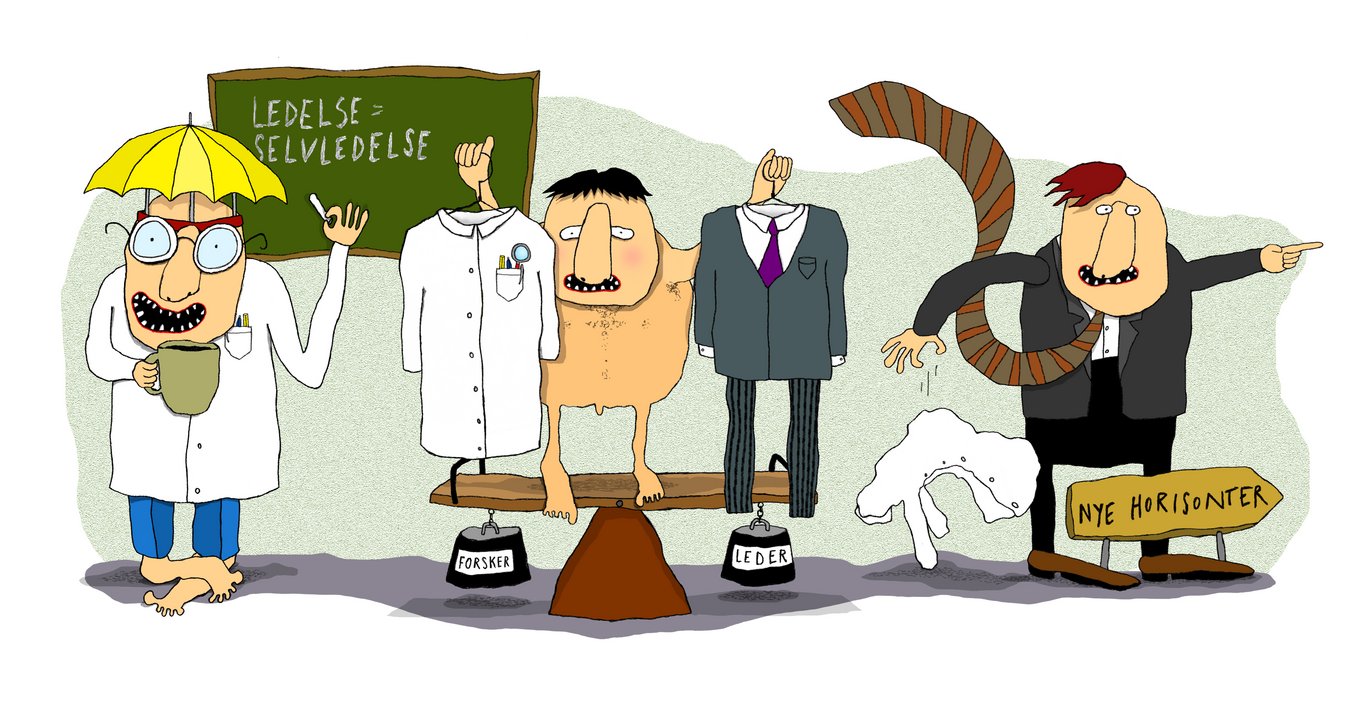Know your manager
How do today's department heads actually do their jobs in an institution with traditional academic values? They simply make a choice between two strategies. Each individual chooses the strategy that makes most sense to them in their role as manager, says postdoc Lise Degn, who has carried out a scientific study of management in academia in Denmark following the major university reforms in the 2000s.

University management has been one of the most hotly debated topics – not least internally – at the Danish universities since politicians adopted a new University Act at the beginning of the millennium. With the act, politicians introduced a radical shift in the concept of management in academia.
"The management and governance reforms which were part of the new Act from 2003 represented a major break with some strong traditions," says Lise Degn, who last year defended a PhD on management at the Danish universities. She is now employed as a postdoc at the Danish Centre for Studies in Research and Research Policy, part of the Department of Political Science and Government.
Researcher and/or manager
Politicians have attempted to make the universities receptive to the management reform by emphasising that managers must still be respected researchers with an involvement in the field they are to manage. Even though they are now required to be full-time managers.
"I thought it was interesting to answer the question of how you go from being a researcher, which is after all a very strong identity, to being a full-time manager. And how managers handle that change. How do they balance between the two different identities," says Lise Degn explaining the background for getting involved in the subject of university management prior to beginning her PhD in 2010.
Focus on department heads
Lise Degn’s study has focused on the department heads because, according to her, that is the level in the management hierarchy where the change in management form has been most radical. She has talked to department heads from the natural sciences, the humanities and the social sciences. And she’s also spoken with managers who worked in the old structure before 2003 and managers who were appointed after the introduction of the new structure.
Managers select a strategy
The conclusion Lise Degn reached in her study was that following the introduction of the management and governance reform, managers typically selected one of two different strategies, and that this choice was crucial for how they fulfilled the role of manager.
"The strategies can also be seen as two narratives about what it means to be department head. The managers select the narrative that makes most sense for them in relation to what it means to be a manager," says Lise Degn.
She continues:
"I have called the first the preserving strategy. Those who utilise this strategy view the structure from before the reform as something very positive. They find it difficult to understand the rational basis for change because they have difficultly seeing what the problem was with the old structure."
Lise Degn calls the second strategy the evolving strategy and she explains that managers who utilise this strategy are:
"The ones with a narrative about how there were some power structures in the old system which meant that it was completely impossible to decipher where and by whom decisions were actually taken in the system. They emphasise that there were some problems in the old system, thereby also saying that there was a need for change."
Three stereotypes
Based on the two strategies, Lise Degn has identified three stereotypical university managers.
"There are managers who almost exclusively use the preserving strategy and there are managers who almost exclusively use the evolving strategy. But then there are also managers who try to combine the two strategies because they have difficulty figuring out which narrative makes most sense to them personally," says Lise Degn.
She terms the three types of managers shielders, co-ordinators and agenda setters. Take a look at the characteristics of the three types on the next pages – maybe you will recognise your own department head – or yourself if you are a manager.
Translated by Peter Lambourne
Facts
2003 – one result of the new University Act was new management constellations for the Danish universities with professional boards and staff who were professional, full-time managers:
The new Act means that the board must comprise a majority of members from outside the walls of the university. They also appoint the rector and the rector must in turn appoint the deans, and the deans must appoint the department heads.
All of which was a break with the internal self-government system that had previously existed at the universities. A management form that also gave students and employees direct influence on who constituted the management, as management was chosen by and from among the employees at the universities.

